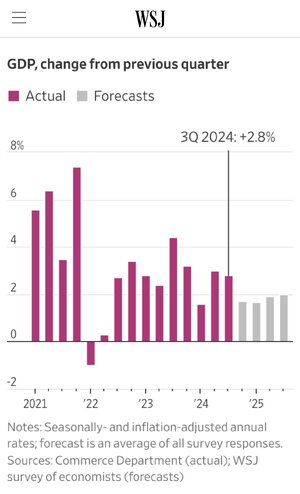heelinhell
Iconic Member
- Messages
- 1,043
and your parents were able to do that in an economic environment 0f double digit inflation, double digit interest rates, and unemployment rates that ranged from 5-7%This is us, I hold a BA from Carolina and an MEd and my wife holds a BS in Dental Hygiene from Carolina. With 3 kids, one in college and 2 still in high school, it seems that we live paycheck to paycheck. Half of my teacher pay goes to health insurance and the mortgage. I'll work until I die and dig my own grave to save the money.
Growing up in the 80's my parents both worked, my father is a mechanical engineer and my mother an RN. She worked more because she wanted to than needed to. We had twice the house I have, they paid for four private school and 3 college tuitions had 3 vehicles and bought a beach house before they were 45. My wife's father was a law professor at Campbell since almost its inception and they still live in the same house in Keith Hills but its been paid off for 20+ years. My MiL never worked. They didn't have the real estate my parents did but they traveled frequently and extensively and my wife and her sister graduated from Carolina debt-free.
If your parents and in-laws are still alive, I suggest you have a talk with them and ask them how they were able prosper during such a dire financial crisis. I'm guessing that any advice they may give you will be very beneficial.





